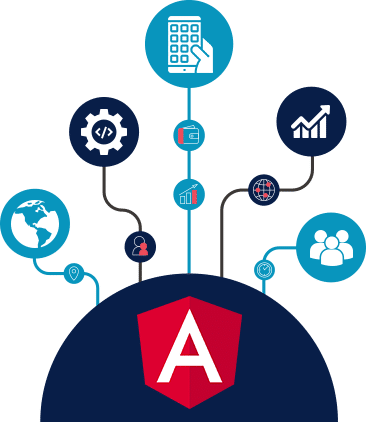Tube Rank: Your Guide to Video Success
Discover tips and insights for optimizing your video presence.
Navigating the Angular Maze: Finding Your Path to Success
Unlock your Angular potential! Discover key strategies and tips to navigate the Angular maze and achieve your development success.
Understanding Angular: Key Concepts Every Developer Should Know
Angular is a powerful framework for building web applications, and understanding its core concepts is essential for every developer. One of the key elements is the component architecture, which allows developers to create reusable UI elements. Components are the building blocks of any Angular application and are defined using a combination of HTML, CSS, and TypeScript. Additionally, developers should familiarize themselves with services and dependency injection, which facilitate the sharing of data and functionality across components.
Another important concept in Angular is routing, which enables navigation between different views within a single-page application. By configuring routes in the application, developers can create a seamless user experience without the need for full page reloads. Furthermore, understanding observables in Angular is crucial, as they provide a powerful way to handle asynchronous data streams and event handling through the RxJS library. Mastering these concepts will empower developers to build dynamic and efficient web applications using Angular.

Top Tips for Overcoming Common Angular Challenges
When working with Angular, developers often encounter a variety of challenges that can impede their progress. To tackle these common hurdles, understanding the framework's architecture and leveraging its built-in tools is essential. Here are some top tips to help you overcome these challenges:
- Familiarize yourself with Angular's Documentation: The official documentation provides comprehensive guidance and troubleshooting advice for common issues.
- Utilize Angular CLI: The Angular Command Line Interface (CLI) can streamline your development process, making it easier to generate components, services, and other essentials.
Another effective strategy is to engage with the Angular community. This can provide you with insights and solutions to issues you may face. Participating in forums or attending meetups can expose you to best practices and new approaches:
- Join online forums: Platforms such as Stack Overflow are excellent for discussing problems and finding solutions shared by other developers.
- Leverage learning resources: Utilize platforms like Coursera or Udemy to enhance your skills and overcome specific Angular challenges.
Is Angular the Right Framework for Your Next Project?
When considering whether Angular is the right framework for your next project, it's essential to evaluate your specific needs and requirements. Angular is a powerful, open-source framework developed by Google that enables developers to create dynamic web applications. It offers a feature-rich environment with tools such as two-way data binding, dependency injection, and a modular architecture, which can significantly enhance development efficiency. However, it may also have a steeper learning curve compared to other frameworks, especially for those new to TypeScript or component-based architecture.
Another crucial factor to consider is the type of project you're working on. Angular excels in building large-scale applications with complex requirements due to its strong opinionated structure and built-in best practices. For smaller projects or those with simpler needs, you might find that lightweight frameworks or libraries, such as React or Vue.js, could be more suitable. Ultimately, it's essential to weigh the pros and cons of Angular against your project goals, team expertise, and future scalability needs.